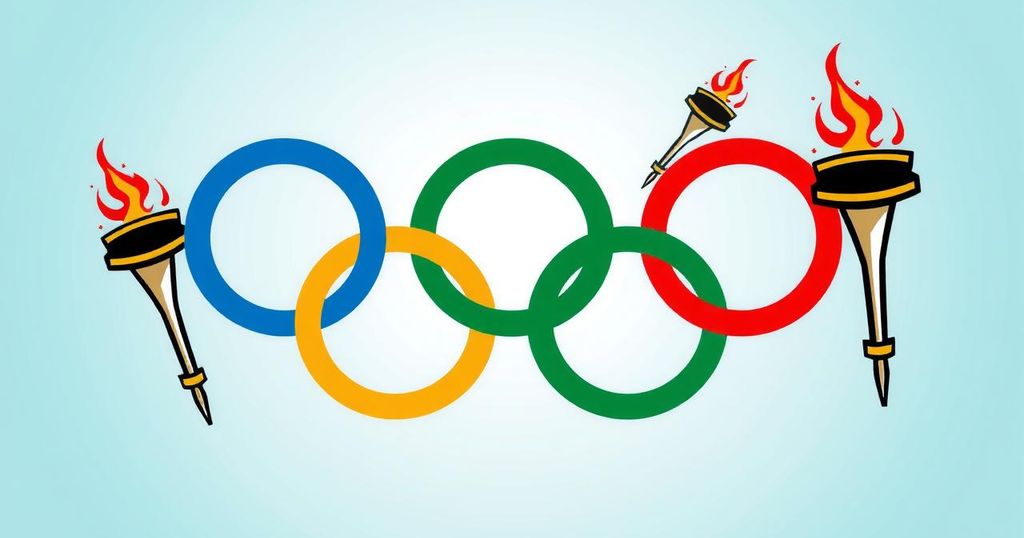IOC Presidential Election: Challenges and the Future of the Olympic Movement

The IOC presidential election is approaching, with the new president facing financial challenges and calls for prioritizing climate action. The IOC’s revenue has decreased due to sponsor withdrawals, while demands for sustainable practices by Olympians have increased. Significant reforms in the IOC’s business model are necessary to navigate these challenges moving forward.
With the upcoming election for the new International Olympic Committee (IOC) president on March 20, the Olympic movement remains buoyant after the success of Paris 2024. However, the incoming president will encounter significant challenges, particularly in rejuvenating an aging business model amid rapid technological changes and shifting media landscapes. A notable concern is the recent departure of major sponsors, which threatens the IOC’s financial standing.
The IOC reported a total commercial revenue commitment of $7.4 billion for the four-year period leading to the 2028 Los Angeles Games, reflecting a decline from $7.7 billion anticipated from Paris, although it shows an increase from $6.9 billion during the Tokyo cycle. Economic pressures, notably high inflation, are tightening the budget for grassroots sports that depend on Olympic funding. The next president will need to promptly enhance revenue and reduce costs as the organization grapples with a significantly increased workforce in the past decade, failure to achieve this could jeopardize the entire Olympic ecosystem.
Financially, over 60% of the IOC’s income is derived from long-term television contracts, including a recent agreement with NBC worth $3 billion to extend Olympic coverage through 2036. While many broadcast contracts are secure in the near term, the landscape is shifting. The new NBC contract features collaborative initiatives demonstrating the complexity of current negotiations. Additionally, about 30% of IOC revenue is linked to the Olympic Partner (TOP) program for sponsors, which has been facing reductions due to exits like Toyota, Bridgestone, and Panasonic post-Paris Games.
In a demonstration of unity, over 400 Olympians from nearly 90 countries have urged that climate initiatives be a priority for the next IOC president. This collective, organized by REUTERS’ Nick Mulvenny, issued an open letter advocating for an immediate meeting with the elected candidate to discuss environmental concerns. They emphasized the need for the IOC to enhance its commitments to reducing carbon emissions and promoting sustainable practices at Olympic-hosting cities, as well as to set standards regarding sponsorship deals with environmentally irresponsible companies.
The IOC presidential election is set against a backdrop of financial challenges and demands for environmental responsibility. As sponsors withdraw and economic conditions tighten, the new president will be tasked with revitalizing the Olympic business model. Coupled with this financial imperative is the need for sustainable action, as voiced by the global Olympian community. The outcome of this election may significantly influence the future trajectory of the Olympic movement amid these pressing challenges.
Original Source: www.sportsbusinessjournal.com








